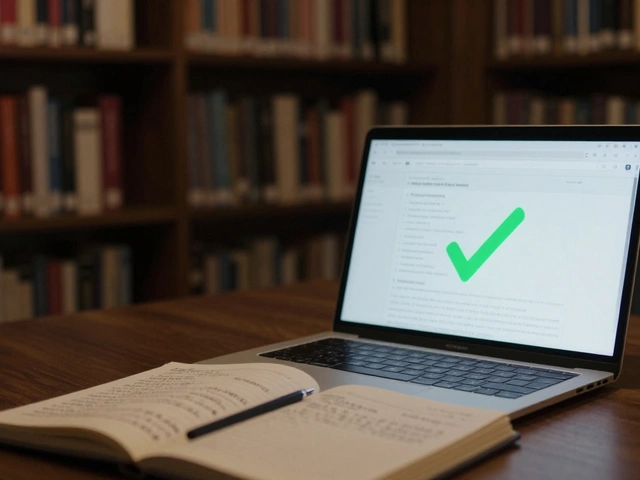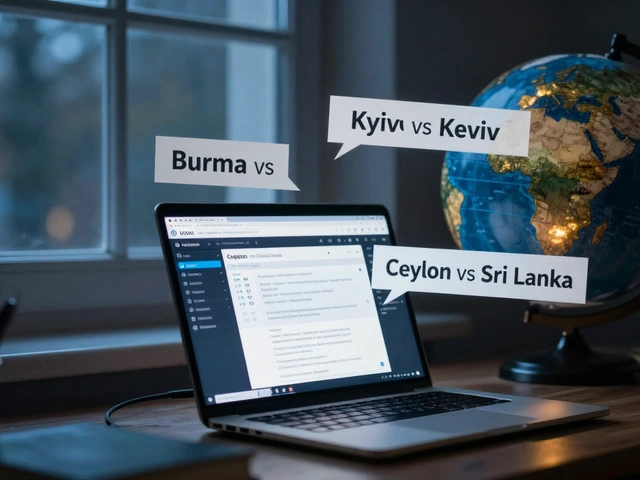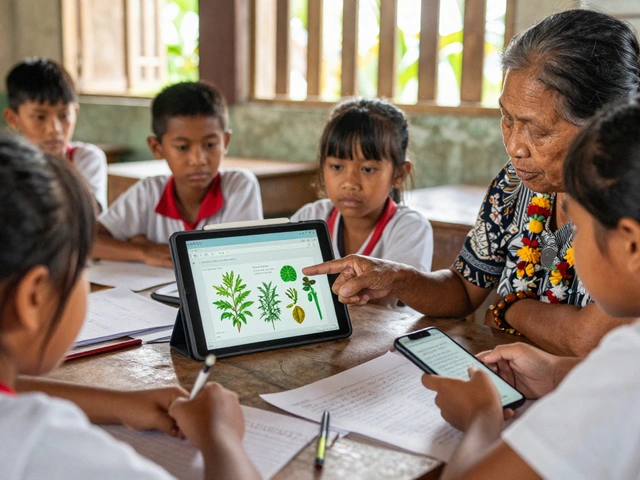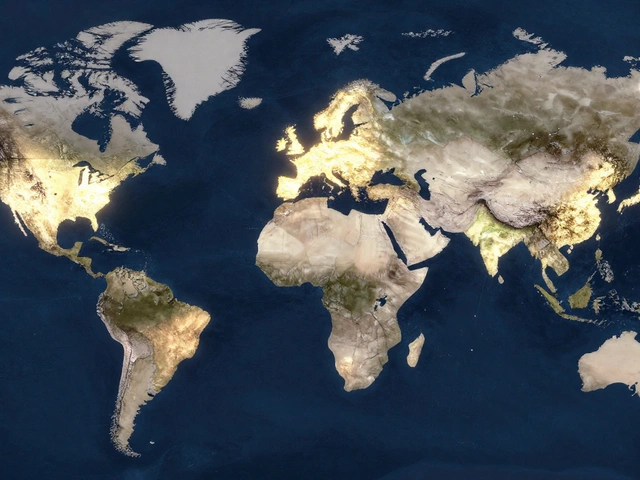
Wikinews launched in 2004 as Wikipedia’s bold experiment in citizen journalism. Unlike traditional news outlets, it doesn’t pay reporters. It doesn’t have editors with salaries. It runs entirely on volunteers who write, fact-check, and publish stories in over 30 languages. But here’s the problem: after two decades, it’s still standing-barely.
How Wikinews Survives Without a Budget
Wikinews is hosted by the Wikimedia Foundation, the same nonprofit that runs Wikipedia. That means it shares infrastructure: servers, bandwidth, domain names, legal support. But unlike Wikipedia, which gets millions in donations every year, Wikinews doesn’t get its own fundraising campaigns. It’s an afterthought in a $180 million annual budget that’s mostly directed toward Wikipedia’s global reach.
The site’s entire editorial team-writers, copyeditors, administrators-volunteers their time. Many contributors are students, retirees, or professionals who write during evenings or weekends. There’s no editorial calendar. No breaking news desk. No on-call reporters. When a major event happens, someone who happens to be online and cares enough writes about it. That’s how coverage works.
This model works for short, factual reports-like a local election result or a scientific paper release. But it breaks down when stories need deep investigation, international access, or follow-up reporting. There’s no budget for travel, source protection, or document requests. No one can afford to file FOIA requests in multiple countries. No one gets paid to chase leads.
Why Don’t People Donate to Wikinews?
People donate to Wikipedia because they understand its value: a free, universal encyclopedia. They know what it is. They’ve used it. They trust it.
Wikinews? Most people don’t even know it exists. A 2023 survey by the Reuters Institute found that only 7% of internet users in the U.S. and Europe had ever heard of Wikinews. Among those who had, fewer than 1 in 5 could name a single article they’d read from it.
That’s not just a branding problem. It’s a survival problem. Donors give money to things they recognize. Wikimedia Foundation’s fundraising emails show Wikipedia’s monthly readership numbers-over 2 billion. They don’t mention Wikinews’s 12 million monthly visits. Why? Because it’s not a priority. And if the foundation doesn’t push it, why would the public?
There’s also a perception issue. Some see Wikinews as a low-quality alternative to Reuters or AP. That’s not always fair-but it’s hard to fight when you have no budget for promotion, no bylines that carry weight, and no consistent tone.

The Volunteer Drain
Volunteer communities don’t last forever. They need new blood, recognition, and structure.
Wikinews has seen its active contributors drop by nearly 60% since 2015. In 2010, over 200 people were editing the site weekly. Today, fewer than 80 do. Many of the remaining contributors are the same people who started in 2005. They’re aging out. Others left because they got burned out.
There’s no mentorship system. No training. No feedback loop. A new writer submits a story. It gets flagged for tone, structure, or sourcing. They get a terse comment: “Needs neutral point of view.” No explanation. No help. They never come back.
Compare that to The Guardian’s crowdsourced journalism project, which offers workshops, feedback sessions, and even small stipends for top contributors. Wikinews doesn’t have the resources to do that. But it doesn’t even try.
Why the Wiki Model Fails for News
Wikipedia works because facts don’t change fast. The population of Tokyo? It’s stable. The date of the Battle of Waterloo? Fixed. News? It moves hourly.
Wikipedia’s strength is slow, deliberate consensus. News needs speed, urgency, and accountability. Wikinews tries to do both. It demands neutrality like Wikipedia, but also timeliness like AP. That’s nearly impossible without staff.
Take the 2020 U.S. election. Wikipedia had dozens of editors updating pages in real time. Wikinews? Only a handful of volunteers posted summaries hours after results came in. There was no live coverage. No analysis. No interviews. Just reposted press releases.
News isn’t just facts. It’s context. It’s source verification. It’s knowing who to trust. Wikinews has no way to guarantee that. Anyone can write a story. Anyone can delete a correction. There’s no legal shield. No editorial liability. No insurance. That scares off serious contributors.

What Could Save Wikinews?
It’s not too late-but the changes need to be bold.
- Partner with journalism schools. Offer course credit for students who contribute verified reports. University labs could help fact-check stories. Some schools already do this with local newspapers-why not Wikinews?
- Create a micro-grant program. $50 for a reporter who files a verified story from a rural town. $100 for translating a major article into Spanish or Arabic. Small amounts go a long way when you’re operating on zero budget.
- Launch a public awareness campaign. A simple video series: “What if Wikipedia had a news section?” Show real stories written by real volunteers. Highlight the human side. Make people proud to read it.
- Build a simple moderation system. Add a “verified by” badge for stories reviewed by trained editors. Let readers know which reports have been checked. That builds trust.
- Apply for journalism grants. The Knight Foundation, the Open Society Foundations, and others fund open-access journalism projects. Wikinews has never applied. Why? Because no one thought it was possible.
None of these require millions. They require focus. They require someone to say: “This matters.”
The Bigger Picture
Wikinews isn’t just a website. It’s a test case. Can a free, open, community-run news source survive in an era of algorithm-driven media and paid misinformation?
If it fails, it’s not because the idea is bad. It’s because no one invested in it. Not the public. Not the foundation. Not the media world.
Wikipedia changed how we access knowledge. Wikinews was supposed to change how we access truth. It’s still trying. But it’s running on fumes.
The next five years will decide if it becomes a footnote-or a blueprint for the future of journalism.
Why doesn’t the Wikimedia Foundation fund Wikinews like it does Wikipedia?
The Wikimedia Foundation prioritizes resources based on usage and impact. Wikipedia has over 2 billion monthly visits; Wikinews has around 12 million. Fundraising campaigns focus on what donors recognize and use. Wikinews has never been promoted as a standalone priority, so it doesn’t get dedicated funding. It relies on shared infrastructure, not direct support.
Can anyone write for Wikinews?
Yes, anyone can create an account and start writing. But stories must follow strict guidelines: neutral tone, verifiable sources, no original reporting. New contributors often face harsh feedback without guidance, which discourages many from staying. There’s no formal onboarding or training system.
Is Wikinews reliable?
It can be-but inconsistently. Because all content is volunteer-driven and lightly moderated, quality varies. Some articles are well-sourced and accurate. Others lack context or contain unverified claims. Unlike professional outlets, Wikinews doesn’t have fact-checking teams or legal oversight. Readers should cross-reference with established news sources.
How does Wikinews handle breaking news?
It doesn’t handle breaking news well. Coverage depends entirely on whether a volunteer is online and motivated to write. There’s no alert system, no assignment desk, and no backup team. Major events often go unreported for hours-or are covered only after mainstream outlets break the story. Speed and reliability are its biggest weaknesses.
Has Wikinews ever won journalism awards?
No. While individual contributors have won awards for their work at traditional outlets, Wikinews as a platform has never received formal recognition from journalism organizations. Its lack of institutional backing, paid staff, and consistent output makes it ineligible for most awards.




